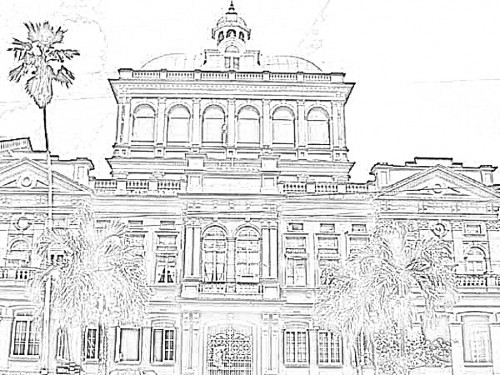By Alexander Britell
THE POLICE RAID on Trinidad newspaper Newsday and the home of one of its journalists earlier this month sent shockwaves throughout Trinidad and the region. Trinidad’s Prime Minister and the opposition have expressed “grave” concern over the events, as has Attorney General Anand Ramlogan, who called for Police Commissioner Dwayne Gibbs to explain the action. To learn more about the situation in Trinidad, Caribbean Journal talked to Kiran Maharaj, the managing director of the CL Communications Media Network and the President of the Trinidad and Tobago Publishers & Broadcasters Association, which has called for an investigation into the matter.
What is your opinion about the raid on Newsday?
Right now, we do not see that it was necessary by the police to act in that manner. We have asked the Commissioner of Police to explain why, specially in light of the fact that we understand Newsday, which is a member of the Publishers and Broadcasters Association, were in fact in the process of cooperating with the authorities. So right now, we are just asking all of these questions to try and get the answer. Because when one is from the outside looking in, it would appear as though it could be deemed to be some kind of “terror tactics,” for want of a better phrase. But in a democracy, it is not the kind of thing that you would expect to happen.
This is not a unique incident, however.
No – we’ve had another situation [at CCN TV6], and quite honestly, we also asked for that to be clarified. But that one was a little more delicate situation. Although again, the whole issue in both instances is the manner in which these raids or searches are being conducted. It’s not about a police officer coming in with a warrant and saying, “listen, we would like to get this material.” This is about a group of police officers coming in and almost swooping down on the organization. When we were youngsters, they said, “it’s not what you say, it’s how you say it.” And basically, that is what we are questioning in all of this. We in no way want to interfere with the course of justice. We understand people have to do what they see fit, but definitely not conduct themselves in this manner, because it sends a chilling effect down the spine of many of us in media.
How would you describe the current climate of press freedom in Trinidad?
I think that right now we are at an evolutionary stage in our media industry. So while we understand that there will always be two sides of a coin, I do think that media has been able to operate as freely as it would like to. But when these two instances happen in a four-month period, it leads one to believe that press freedom may be under attack in some way.
Has there been any change in the climate from administration to administration?
No. I think it’s been consistent actually. And again, I think that’s because we’re still a very young nation, and in an evolutionary stage.
Did the State of Emergency have any impact on press freedom?
No, I don’t think so. I think that the State of Emergency affected all citizens in the same manner, and even after the State of Emergency, citizens have their own self-imposed curfews, because of the crime situation.
How would you like to see this situation play out?
I would like to see the Commissioner of Police and other people in authority sit down with the Publishers and Broadcasters Association and say, “listen, this is why it was done this way.” We, too, should have the opportunity to speak to them about why we feel threatened. I don’t think anything is gained by protesting, but I think there needs to be open dialogue for us to understand what is happening, because it impacts not just on us as practicing professionals, but it also impacts on the country. Here you are, calling me because you feel it affects the media. So there needs to be some urgent dialogue.
